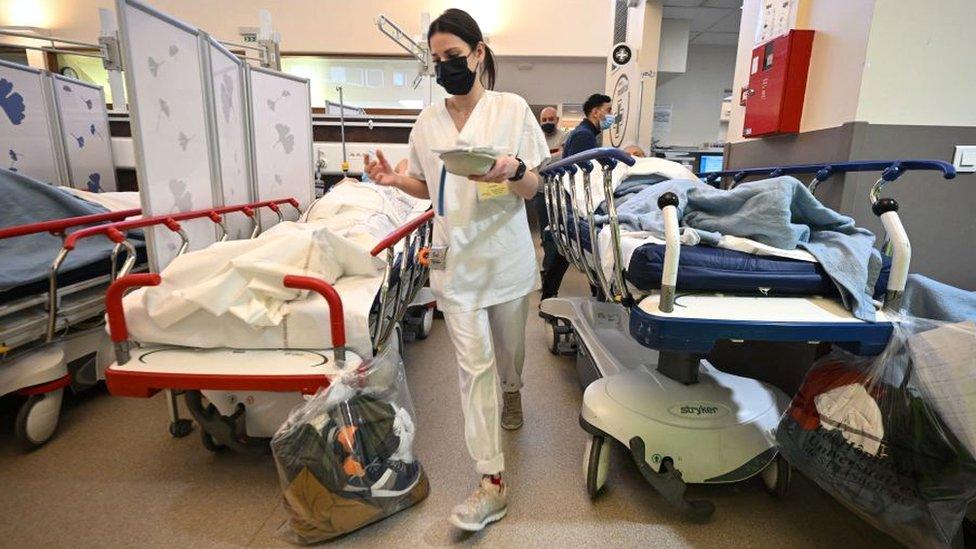**France** frequently ranks near the top when global healthcare system rankings are released. The French healthcare system is renowned for its **universal access**, **quality of care**, and **patient satisfaction**. It expertly integrates **government-run insurance** with **private sector support**, providing citizens with comprehensive, affordable healthcare without sacrificing efficiency or choice.
This hybrid model, which is frequently referred to as “**la Sécurité Sociale**,” serves as a compelling illustration of how the public and private sectors can collaborate to provide universal healthcare that is both efficient and effective.
A Brief Overview of the French Healthcare System
At its core, France provides **universal healthcare coverage** by combining **state-run health insurance** with **voluntary private insurance**.
**Assurance Maladie (Public Insurance)**
* Supported by **general taxation**, **employer contributions**, and **payroll taxes** Covers all lawful residents, including non-citizens with permanent residency. The **Sécurité Sociale** is administered by numerous subdivisions, each of which is responsible for a distinct sector (e.g., general laborers, agricultural workers, and self-employed). Covers **approximately 70–80%** of the majority of medical expenses
**Mutuelle Private Supplementary Insurance**
* Provides coverage for the remaining **20–30%** of out-of-pocket expenses that are not reimbursed by the state * Provided by nonprofit or for-profit insurers * Employers frequently offer “mutuelle” coverage as a benefit, while others purchase it independently. It is widely used, with over 95% of the population possessing supplementary insurance.
What is included?
France’s healthcare system is **inclusive and comprehensive**. Public insurance encompasses:
* General practitioners and specialists’ visits * Hospital stays and surgeries * Maternity care and childbirth * Diagnostic tests and imaging * Mental health services * Long-term care * Prescription medications (reimbursed at varying rates based on necessity)
Patients typically pay in advance for the majority of services and are reimbursed within a week. Billing is frequently conducted directly between the provider and the state for significant treatments and hospital stays.
The French model’s primary strengths include:
**Universal Coverage** – Healthcare is a fundamental right for all residents, irrespective of their income or employment status. **High Quality of Care** – Access to advanced medicine, short wait times, and robust health outcomes. **Freedom of Choice** – Patients are able to select their doctors and specialists without the need for referrals. **Efficient Spending** – France spends less per capita than the U.S., yet it achieves superior results. **Robust Public-Private Balance** – The system leverages the strengths of both sectors to benefit patients.
Reforms and Obstacles
Although France’s system is highly regarded, it is not without its challenges:
* **Financial Pressures** – The rise in costs is a result of the aging population and chronic illnesses. * **Health Professional Shortages** – Access disparities are exacerbated in rural areas due to the lack of health professionals. * **Bureaucracy and Complexity** – The reimbursement and insurance processes can be confusing to navigate. * **Hospital Debt** – Public hospitals are under strain, with calls for improved funding and staffing.
France has implemented numerous reforms to address these issues, such as investments in **preventive care and telemedicine**, incentives for rural health personnel, and digital health tools (such as the **Carte Vitale smartcard system**).
Global Perspective: What Can We Learn from France?
France demonstrates that a universal healthcare system can integrate **efficiency**, **equity**, and **personal choice** without relying exclusively on public or private models. It is a model that is worth investigating for countries that are interested in reforming or constructing resilient healthcare systems due to its capacity to reconcile comprehensive public coverage with optional private supplementation.
Final Thoughts
The healthcare system in France is not solely concerned with the treatment of illness; it also aims to maintain the dignity of all citizens by providing them with access to high-quality care in a timely manner. France has established a system that is a reflection of the principles of **innovation, accessibility, and solidarity** by utilizing the strengths of both the state and private sector.

Leave a Reply